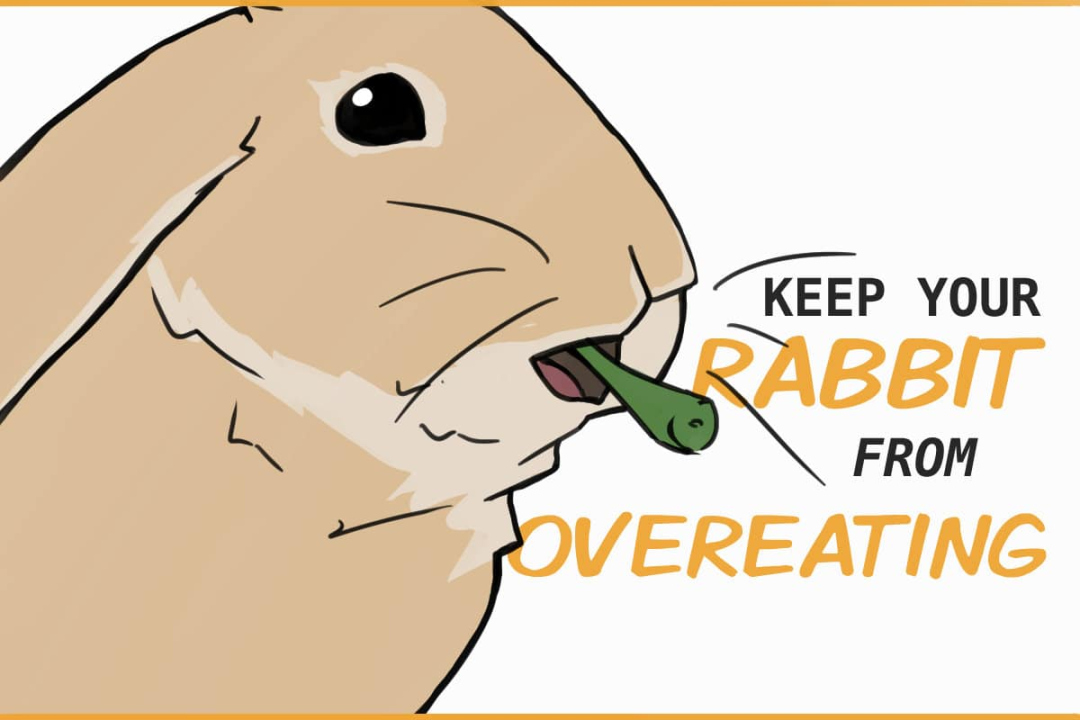Can a Rabbit Die From Eating Too Much?
Feeding your pet rabbit is an important part of its care routine, but can a rabbit actually die from eating too much? While rabbits have a voracious appetite and are known for their love of food, overeating can lead to serious health issues that can indeed be fatal. In this article, we will explore the risks associated with overfeeding rabbits and discuss measures to prevent overeating.

Risks of Overeating for Rabbits
Overeating can have several negative consequences for rabbits, including:
- Obesity: Rabbits that consume excessive amounts of food are at risk of becoming overweight or obese. This can lead to a range of health problems, such as joint issues, heart disease, and difficulty grooming.
- Gastrointestinal Stasis: Rabbits have a delicate digestive system, and overeating can disrupt their gut motility. This can result in gastrointestinal stasis, a condition where the digestive system slows down or stops completely. Gastrointestinal stasis can be life-threatening if not promptly addressed.
- Diarrhea and Dehydration: Overeating can overwhelm a rabbit’s digestive system, leading to diarrhea. Prolonged diarrhea can cause dehydration, which is particularly dangerous for rabbits as they have a limited ability to conserve water.
- Urinary Tract Issues: A diet high in carbohydrates, often associated with overeating, can lead to an increased risk of urinary tract problems in rabbits. These issues can be painful and require veterinary intervention.
- Malocclusion: Overeating can result in rapid tooth growth, leading to malocclusion where the teeth do not align properly. This condition can cause pain, difficulty eating, and further complications if left untreated.
Preventing Overeating in Rabbits
To prevent the risks associated with overeating, it’s essential to establish a healthy feeding routine for your rabbit. Here are some tips:
- Portion Control: Provide your rabbit with the recommended daily amount of food based on its size and breed. Consult with a veterinarian to determine the appropriate portion size.
- Timed Feedings: Instead of leaving an unlimited amount of food available at all times, establish specific feeding times. This helps regulate your rabbit’s eating habits and prevents overeating.
- Quality Diet: Ensure your rabbit’s diet consists of high-quality hay, fresh vegetables, and a limited amount of pellets. Avoid feeding excessive amounts of treats or foods high in sugars and carbohydrates.
- Monitor Weight: Regularly monitor your rabbit’s weight to ensure it stays within a healthy range. If you notice sudden weight gain or loss, consult with a veterinarian.
- Enrichment Activities: Provide your rabbit with toys, tunnels, and other forms of enrichment to prevent boredom. This can help distract them from constantly seeking food.
FAQs about Overeating in Rabbits
1. Can a rabbit eat itself to death?
While it’s highly unlikely for a rabbit to eat itself to death, overeating can lead to severe health issues that can be life-threatening if left untreated.
2. How much should I feed my rabbit?
The amount of food a rabbit needs depends on its size, breed, and age. Consult with a veterinarian to determine the appropriate portion size for your specific rabbit.
3. Can rabbits have unlimited access to food?
No, it is not recommended to provide unlimited access to food for rabbits. Controlled portions and timed feedings are important to prevent overheating and associated health problems.
4. What are the signs of overeating in rabbits?
Signs of overeating in rabbits include weight gain, decreased activity levels, changes in stool consistency, and a loss of appetite.
By being vigilant about your rabbit’s diet and implementing proper portion control, you can prevent the risks associated with overeating. Remember to consult with a veterinarian for personalized advice regarding your rabbit’s dietary needs. Keeping your furry friend healthy and happy is essential for their overall well-being.
Related Articles…
Copyright Notice:
All images featured on this site are sourced from the internet, copyrights belong to respective owners. Should you own any image and require it to be removed, please contact us.